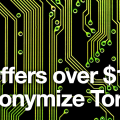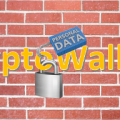Trendmicro wrote a very good report covering the deep and dark web found HERE. It is worth the read and includes many examples with screenshots of the types of goods and services sold as well as statistics of the types of users and systems seen over the last few years. Here is the intro from the report.
Interest in the Deep Web peaked in 2013 when the FBI took down the Silk Road marketplace and exposed the Internet’s notorious drug trafficking underbelly. Ross Ulbricht, aka Dread Pirate Roberts, was charged for narcotics trafficking, computer hacking conspiracy, and money laundering. While news reports were technically referring to the Dark Web—that portion of the Internet that can only be accessed using special browsing software, the most popular of which is TOR [1]—negative stereotypes about the Deep Web spread.
The Deep Web is the vast section of the Internet that isn’t accessible via search engines, only a portion of which accounts for the criminal operations revealed in the FBI complaint [2]. The Dark Web, meanwhile, wasn’t originally designed to enable anonymous criminal activities. In fact, TOR was created to secure communications and escape censorship as a way to guarantee free speech. The Dark Web, for example, helped mobilize the Arab Spring protests. But just like any tool, its impact can change, depending on a user’s intent. In our 2013 paper, “Deep Web and Cybercrime [3],”and subsequent updates [4, 5, 6], we sought to analyze the different networks that guarantee anonymous access in the Deep Web in the context of cybercrime. In the process, we discovered that much more happens in the murkier portions of the Deep Web than just the sale of recreational drugs. It has also become a safe haven that harbors criminal activity both in the digital and physical realms.
This paper presents some relevant statistics derived from our collection of Deep Web URLs and takes an even closer look at how criminal elements navigate and take advantage of the Deep Web. It provides vivid examples that prove that people go there to not only anonymously purchase contraband but also to launch cybercrime operations, steal identities, dox high-profile personalities, trade firearms, and, in more depraved scenarios, hire contract killers.
Read more by accessing the full report HERE.



